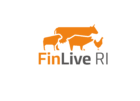FinLive RI, a new national livestock research infrastructure is a distributed infrastructure network that upgrades, connects and integrates existing but scattered national facilities and data. It includes high-throughput, flexible experimental environments with newest sensor and analytical technologies for animal monitoring and sampling, data management and storage. The environment consists of 5 units (dairy cattle research barn and monogastrics and small ruminant unit) at Natural Resources Institute (Luke) Jokioinen, Luke Maaninka (dairy cattle research) in Kuopio, Luke Ruukki (beef cattle research) in Siikajoki, University of Helsinki (UH) Viikki unit (dairy cattle research) in Helsinki and UH Mäntsälä, ambulatory veterinary practice and production animal hospital.
FinLive RI will support green transition by enhancing studies on livestock environmental emissions, feed efficiency and alternative feeds, circular production systems, product quality, reproduction, behaviour, animal health and welfare. The research will combine latest advances in genomics, animal physiology, microbiome research, animal breeding, feed technology and mathematical modelling to make animal production more environmentally friendly, improve animal welfare, reduce use of antibiotics, prevent future pandemics, and improve farm resilience, resource efficiency and food and nutrition security and safety. There is an identified national and European need for coordinated facilities for livestock research. The strategy committee for dairy cattle research in Finland suggested development of a Finnish Dairy Cattle Research network for coordination of research activities, and for facilitation of international activities. FinLive RI will provide the focal point for this activity and, serve also other livestock activities. The development project is aimed especially to support digital transition by open science and FAIR principles to make the infrastructures and data of Luke and UH available to the business sector and other research institutes through a common data service model. FinLive data service to be constructed will offer researchers and students easy access to research data on animal genetics, nutrition, health and welfare. The service will offer data discovery and management which gives higher return on investments, while reuse of research data is supported with documentation and harmonization. It will also enable sharing FAIR research data with other infrastructures in a European data space.
